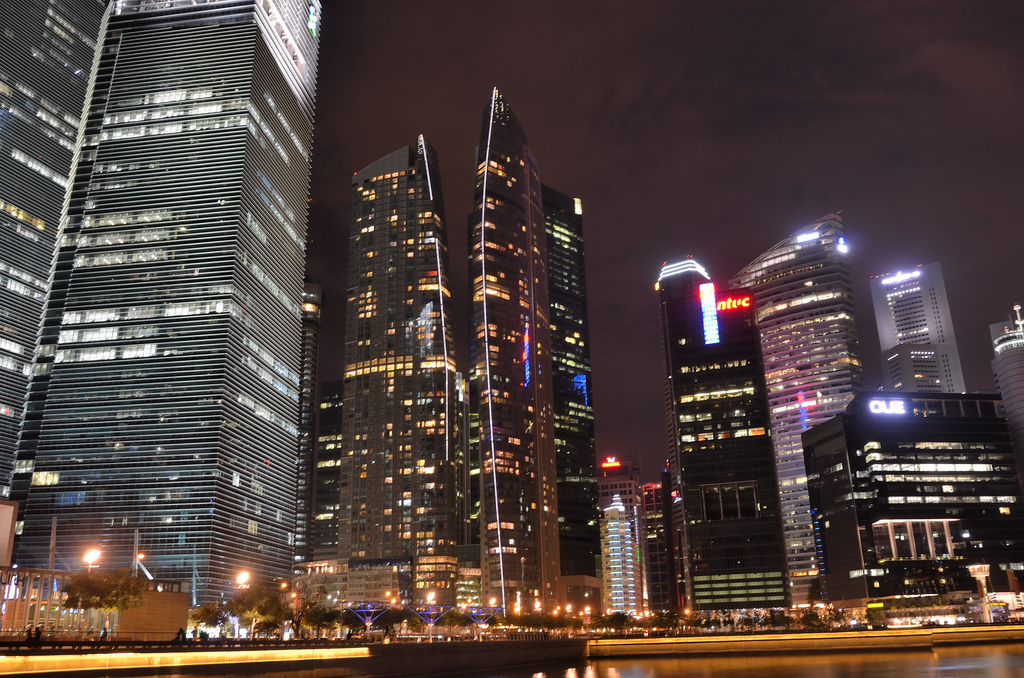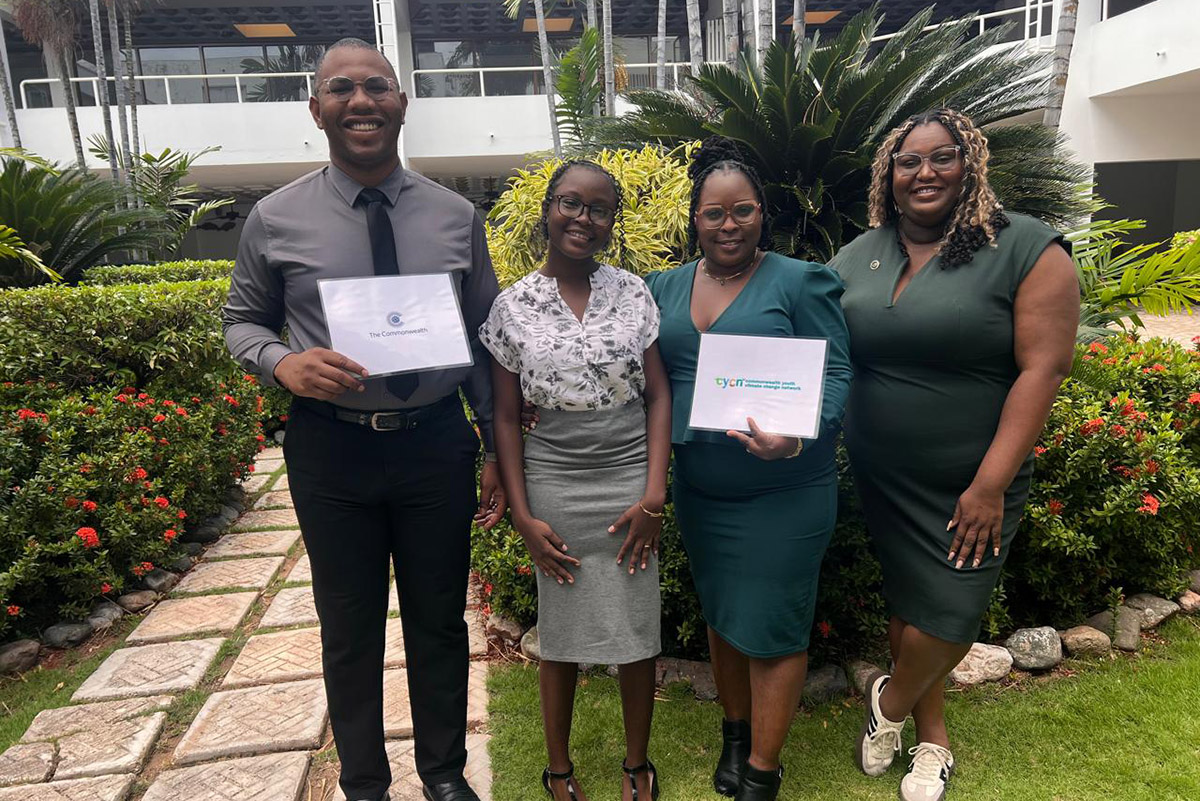“A youth’s dreams for Singapore at 50”
November 3 Singapore’s transformation within half a century is the result of sheer determination by her founding fathers and the commitment of her people to honesty and hard work, argues Kevin Tan, 19, a Correspondent from Singapore. Despite her remarkable success, he challenges the nation to seize opportunities in arts and technology.
Singapore’s transformation within half a century is the result of sheer determination by her founding fathers and the commitment of her people to honesty and hard work, argues Kevin Tan, 19, a Correspondent from Singapore. Despite her remarkable success, he challenges the nation to seize opportunities in arts and technology.
As Singapore celebrates her 50th year of independence, the jubilee celebrations serve not just as a time to take stock of what her people has achieved but also to start rethinking and reimagining a bolder future for themselves.
Singapore has gone from strength to strength. Impossibilities and difficulties, which confound numerous countries even till today, have been tackled and solved with efficiency and quality. According to Bloomberg View, Singapore’s per capita gross domestic product has surged by more than 100-fold since the 1960s.
The astounding pace of economic development seems almost unexplainable. Some would say that her transformation is a “miracle”. Well, I beg to differ. Admittedly, the rise of Singapore cannot be distilled to a single factor. Singapore is a work in progress and was born not out of coincidence but out of her people’s determination.
A significant factor in Singapore’s success would be the superb quality of her pioneer leaders. Her leaders saw opportunity, not desperation. They were filled with optimism, not pessimism. This gave them the will to execute their bold visions in an uncompromising fashion.
Singapore’s late founding father, Mr. Lee Kuan Yew, never gave up on this little island. In 1965, he proclaimed: “This country belongs to all of us. We made this country from nothing, from mud flats… Over 100 years ago, this was a mud flat, swamp. Today, this is a modern city. Ten years from now, this will be a metropolis. Never fear!”
The firm conviction in their beliefs convinced Singaporeans to pursue an ideal. They believed that an island could become a nation, that a nation’s success was not dependent on her natural endowments but the quality of her people. Astute policymaking and an honest government helped sow the seeds for Singapore’s success.
Today, the vibrant landscape of modern day Singapore is a testament to those efforts and beliefs.
As Singapore’s 50th year anniversary draws to a close, I believe that these celebrations should not be seen as the peak of our nation’s achievements. Our best days are not behind us. They have yet to come.
Singapore’s future is filled with possibilities and opportunities. At the very least, we are on a much stronger foothold than our forefathers in 1965. With a strong reputation for efficiency and honesty, Singapore can capitalize on her successes as a badge of excellence. We can begin making stronger forays into various fields.
One area in which Singapore has done quite well is the field of arts and culture. The 2013 Caméra d’Or winner, Anthony Chen, demonstrated to a global audience that Singapore is more than a pragmatic nation. His film, “Ilo Ilo”, showed to foreign audiences the similarities between Singaporean society and their own. It helped redefine the Singaporean image by highlighting the inspirational value that Singapore can provide to artists and filmmakers.
As one of the most bustling cities of today, Singapore should aspire to be the cultural capital of Southeast Asia. In fact, actions have already been taken to further this vision. The establishment of the Lasalle College of the Arts is one such example. With our strong economic fundamentals, I hope to see Singapore move towards a greater emphasis on the arts.
One of the hallmarks of a world-class city is its development of a vibrant arts scene. Cities such as New York and London have Broadway and the West End. In the next 50 years, I would like to see Singapore’s Esplanade take its place in the world of theatre and musicals.
Another area that Singapore should look into is the nurturing of her local entrepreneurs into future moguls. With the onset of globalisation due to the ubiquity of the Internet, it is now the time for Singaporean entrepreneurs to take the first step forward toward global success.
In 2014, CNBC penned an article “Is Singapore the next Silicon Valley?” Perhaps, Singapore may no longer be known just for its status as Asia’s financial hub but could also take on a new title as the world’s melting pot of entrepreneurship and startups.
To this end, the government has already begun to establish numerous schemes such as the “Technology Incubation Scheme”. Under this scheme, the Singapore government will co-invest up to 85 per cent in approved startups. Numerous steps have been taken to attract entrepreneurs and venture capitalists to settle in Singapore. I hope that this combination of global economic shift and government intervention can usher in a new age of innovation and technopreneurship in Singapore. In the next 50 years, I hope to see Singapore’s Mark Zuckerbergs take the world’s stage.
The Singapore national anthem is titled “Majulah Singapura”. This translates to “Onward Singapore” in English. In a way, the national anthem has come to symbolise Singapore’s fervent and passionate ethos in chasing the plethora of opportunities. As a Singaporean youth, I want to play a part in preserving Singapore’s rich legacy. Majulah Singapura!
photo credit: Singapore skyline bynight via photopin (license)
………………………………………………………………………………………………………………………………………………………
About me: I am your typical Singaporean son. Currently doing my national service, I enjoy reading, writing and watching movies. I look forward to pursuing a degree in Business Administration at the National University of Singapore under a university scholarship in 2017.
I was imbued with a passion for learning at Hwa Chong Institution, where I was exposed to a wide variety of subjects and activities such as economics, English literature and science research. It is this passion for knowledge and learning that informs my interdisciplinary approach to writing.
………………………………………………………………………………………………………………………………………………………
Opinions expressed in this article are those of the author and do not necessarily represent the views of the Commonwealth Youth Programme. Articles are published in a spirit of dialogue, respect and understanding. If you disagree, why not submit a response.
To learn more about becoming a Commonwealth Correspondent please visit: http://www.yourcommonwealth.org/submit-articles/commonwealthcorrespondents/
………………………………………………………………………………………………………………………………………………………




